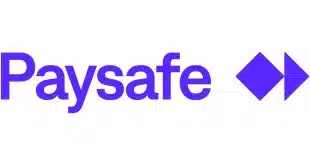The earned-wage access (EWA) industry is at an inflection point, and regulators and legislators will need to think holistically to avoid hurting working Americans.
EWA refers to products that enable workers to access a portion of their earnings independently of their pay cycle. So, rather than waiting for a paycheck at the end of two weeks or the end of a month, workers can get part of their pay when they
need money.
I wrote in April last year about how EWA products could help solve problems caused by income volatility. Research published since then bolsters this argument. In July, the Financial Health Network published the results of a survey of 1,738 low-wage workers. It reported that 37% say they were “worried about our food running out before getting money to buy more.” The phrasing seems to indicate a mismatch between when they earned the money and when they needed to buy food. EWA offers a way to meet that need.
Additionally, in gathering information from its EWA members, the IPA has collated research that shows that on average 63% of EWA users say that it allows them to reduce their use of payday loans, and 55% say they overdraft their bank accounts less often.
Despite these advantages, consumer advocates argue that EWA products are just payday loans by another name. They have encouraged legislators and regulators to ban them.
The industry is at an inflection point. Right now, legislation is moving in at least six states, including Kansas, New York, and Virginia. The bills vary in the approaches they take, but much of the debate seems to hinge on the two primary distribution models of EWA.
In the first model, the EWA provider works directly with employers’ payroll systems to determine how much a customer earns and how much pay the user can access. The integration with the employer helps ensure that taxes, benefits, and garnishments are automatically factored into the calculation.
The second model is direct to consumer, where the worker provides information about income and work hours. Then the provider lets workers access part of their earnings without involving the employer.
Some draft legislation appears to favor one model over the other, while other bills seem to make it more difficult for EWA companies to operate at all. As all of this is happening, the Consumer Financial Protection Bureau is studying the industry.
As I’ve noted, EWA can provide tremendous benefits for low-income people by helping them smooth out the volatility of their income and allowing them to access money when they need it. This can save them costly borrowing and late fees.
So, any legislation or regulation should make sure that it allows EWA companies to continue operating profitably to deliver these benefits to consumers.
As a general principle, any controls placed on EWA should focus on consumer harm and benefit, rather than on the business model. It might be easy to take the view that employers shouldn’t be sharing payroll data with outside companies. But that could choke off the employer-based model. Or, the direct-to-consumer model could come under fire for not working with the employer to get a fuller picture of things like benefits withholding.
Both models, however, offer advantages and should be allowed to exist. Employer-based models offer consumers an easier path to proving their income. Direct-to-consumer models offer benefits to workers whose employers don’t offer earned-wage access.
Consumer protection is critical, but governments should avoid protecting their citizens so much from one threat that they end up in greater financial danger from another, namely, income volatility.
—Ben Jackson bjackson@ipa.org





